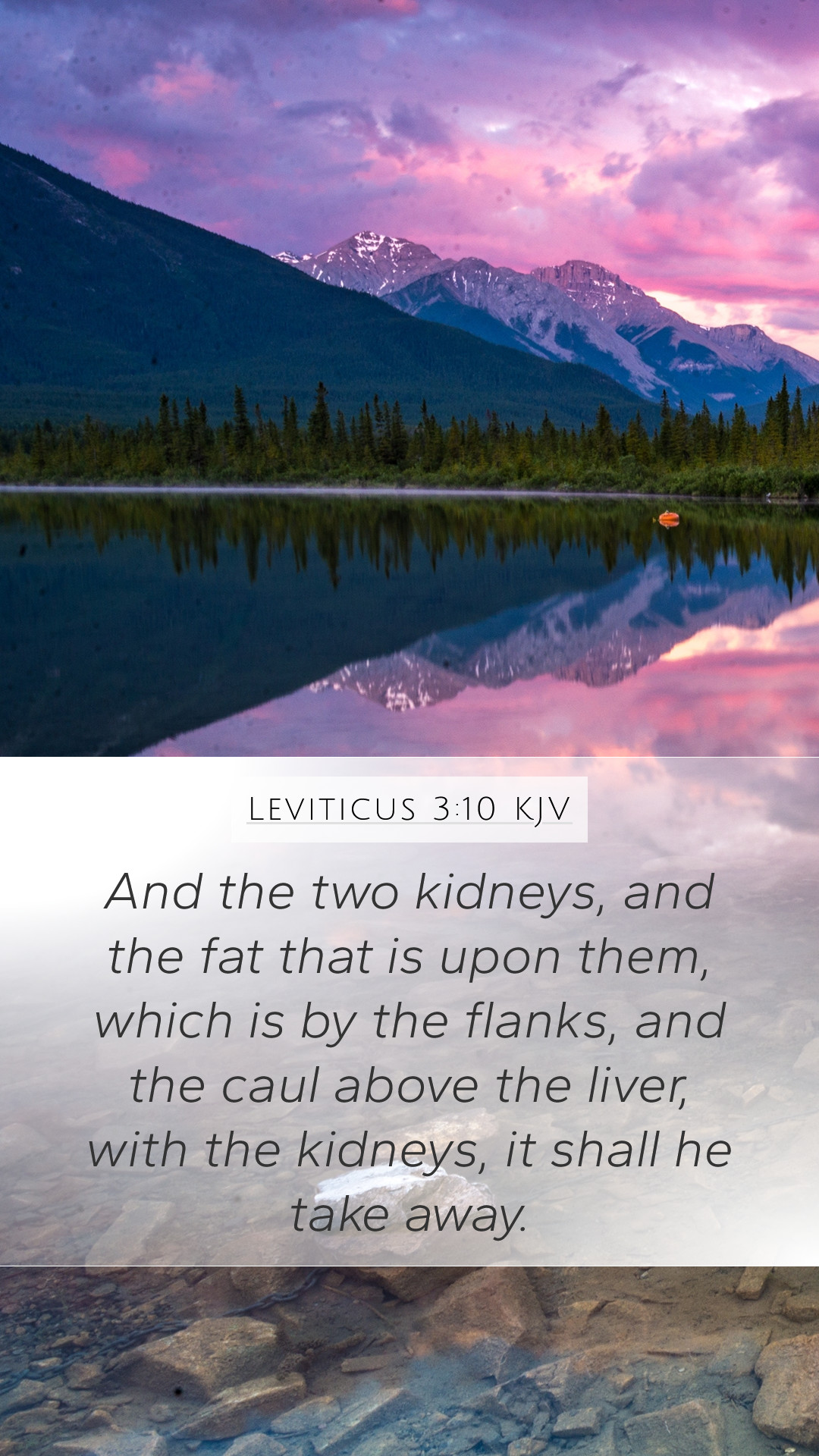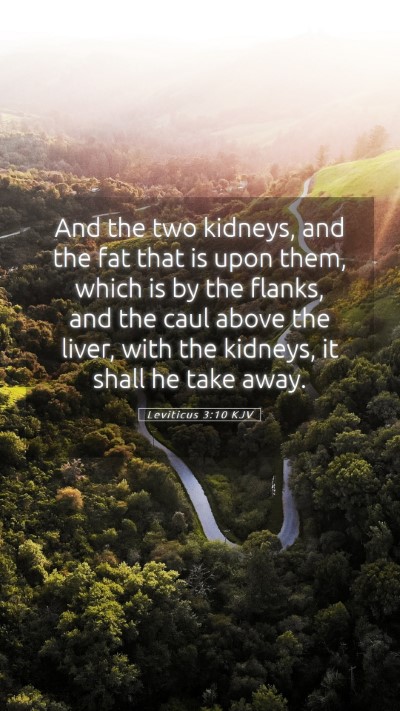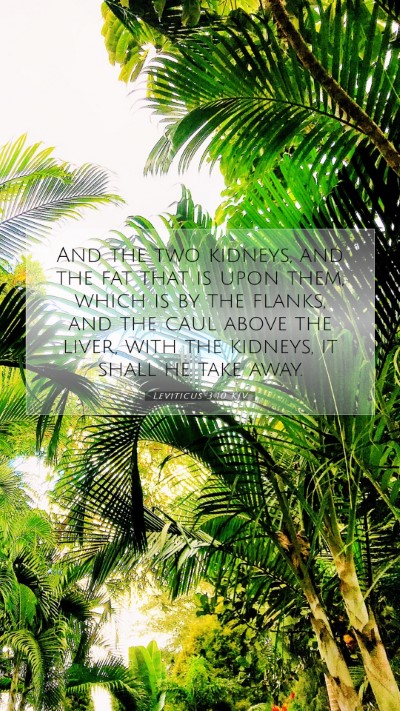Understanding Leviticus 3:10 – Insights and Interpretations
Leviticus 3:10 states, "And the fat that is on the entrails and the fat that is on the inner parts and on the kidneys, and the fat that is on the liver, which is on the entrails, shall be removed." This verse forms part of the instructions concerning the peace offerings, highlighting the regulations concerning the sacrificial system in ancient Israel.
Bible Verse Meanings and Interpretations
The meaning of this Bible verse can be derived through the careful analysis of its components, as elucidated by various public domain commentaries.
-
Matthew Henry's Commentary
Henry explains that the fat mentioned in this verse is considered sacred and is representative of the best portions offered to God. The process of removing these fats signifies the purification necessary for approaching God, who demands holiness and reverence from His people. The act of offering implies a heartfelt connection and an acknowledgment of God’s sovereignty.
-
Albert Barnes' Notes
Barnes highlights that this particular regulation serves to emphasize the holiness of the offering. The fat represents abundance and is therefore a key element of the sacrifice, which must be set apart for God. The details provided in this passage reflect the seriousness with which the Israelites were to approach their sacrifices, showing their commitment to God's laws.
-
Adam Clarke's Commentary
Clarke points out the instructional nature of the sacrificial system depicted in Leviticus, indicating that such offerings were not merely ritualistic but also served to unify the community through shared worship. The emphasis on fat also speaks to the importance of dedicating the 'best' to God, teaching principles of prioritizing our resources in honoring the divine.
Key Themes in Leviticus 3:10
The verse encapsulates several significant themes such as:
- Holiness: The act of offering fat shows the intrinsic holiness attributed to God, wherein believers are called to present their best.
- Sacrifice: It points to the broader sacrificial system that underscores the necessity of atonement and reconciliation with God.
- Community Worship: It illustrates the communal aspect of sacrifices as means of both individual and collective worship.
- Obedience: Adherence to these regulations demonstrates an essential component of Israelite faith, reflecting obedience to divine commandments.
Applying Leviticus 3:10 to Daily Life
Understanding Scripture, particularly this verse, can guide believers in their daily life by:
- Encouraging the offering of one's best efforts and resources to God.
- Reinforcing the value of obedience to God's commands in all aspects of life.
- Fostering community through shared worship experiences and actions.
- Highlighting the importance of purity and introspection when approaching God.
Cross References
This verse relates to several other Biblical passages that provide deeper understanding:
- Exodus 29:13 - Discusses the offering of entrails and fat as significant aspects of sacrifices.
- Leviticus 7:23-25 - Elaborates further on the significance of fat within the sacrificial laws.
- Hebrews 10:4 - Comments on the ultimate sacrifice of Jesus as a fulfillment of sacrificial systems, signifying that the physical offerings were a foreshadowing of His sacrifice.
Conclusion
In conclusion, Leviticus 3:10 is rich with meaning and serves as an essential study material for those seeking to deepen their understanding of Biblical principles and the significance of offerings in the context of worship. By engaging with various commentaries, one can gain a profound understanding of this scripture and its place within the larger narrative of the Bible.


